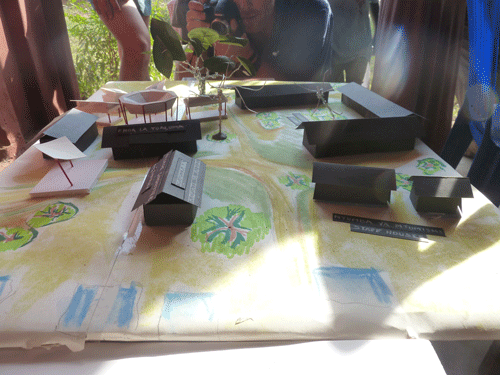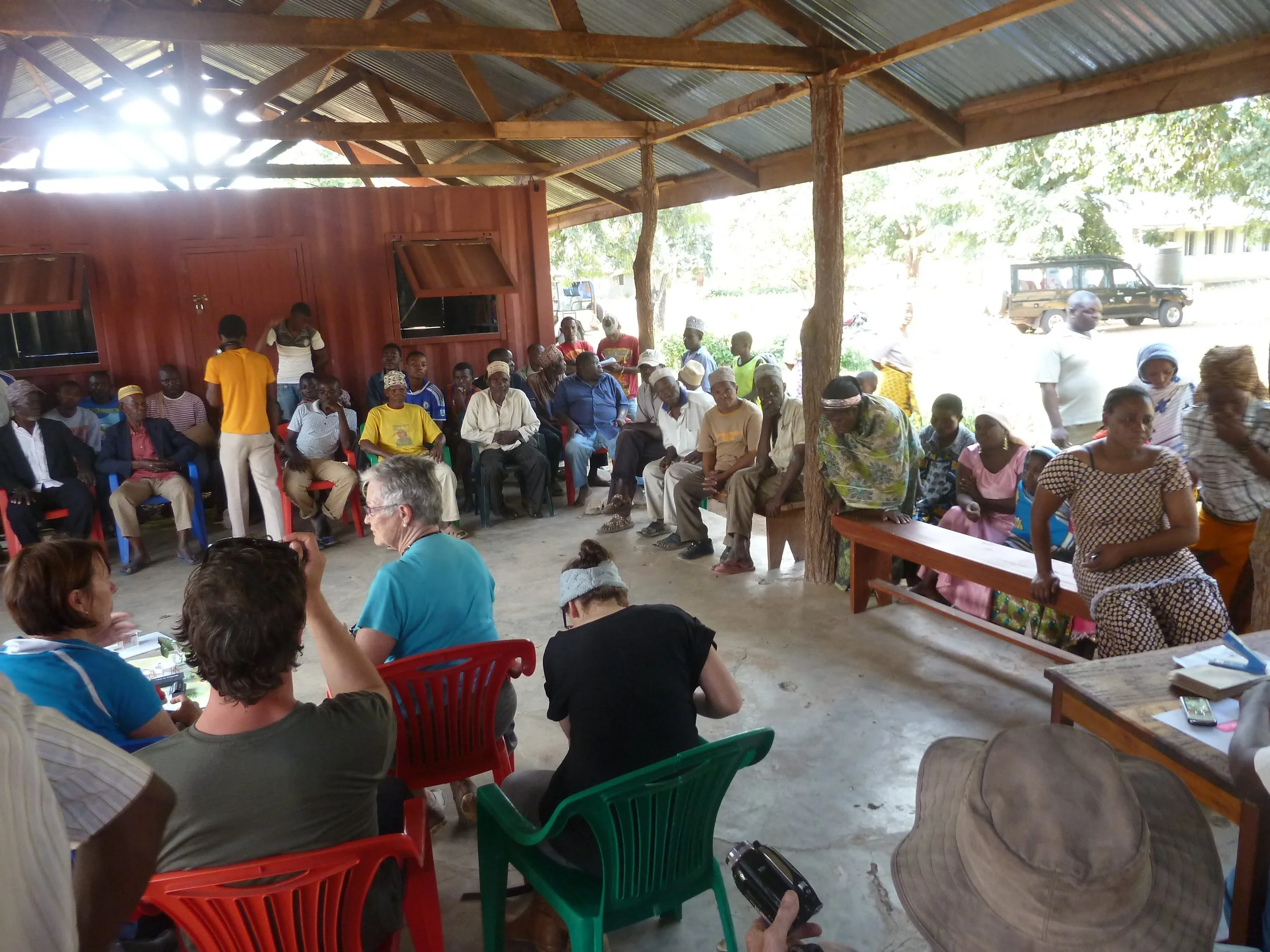

TANZANIA
STUDY TRIP 2013
AN APPROXIMATION OF THE TEXT OF A PRESENTATION GIVEN TO PARTICIPANTS IN A CEFPI (NOW A4LE) SCHOOL VISIT IN 2014
“For those that don’t know me, my name is Tracey Roughana. I am a graduate of architecture at Brown Falconer. In July of last year I visited Matapwili, a village in rural Tanzania as part of a group of architects and teachers. This group of eleven included Phil Idle from Perth, whom many of you will know, Chloe Summers and Anna Frazelas of Flightpath Architects and 8 teachers from (or recently from) Scotch College in Perth, led by Bill Cordner, their Director of Community and Service.
Phil, Chloe and I had met Bill the previous year while participating in the 2012 CEFPI Mayfield Project, entitled Schools as Sanctuaries of Hope. I personally, but am confident to speak on behalf of the others in this regard, was struck by and impressed with Bill’s commitment to and ongoing involvement with Matapwili. Each two years, he (and others) take a group of students from Scotch College and its sister college, PLC to Matapwili, and help to either build a new facility for the village, or do repairs and maintenance to existing buildings. Past projects have included a new resource centre and library as well as the painting of existing primary school classrooms. The visits have been a regular part of the Scotch College and PLC curriculum for about 8 years now.
During the course of that Mayfield Project, the Perth team enjoyed a cross pollination of ideas and possibilities between teacher and architects, resulting in a heightened and healthy regard for the other, and from this, the seed was planted that perhaps architects could add another dimension to the work already being done by Bill and his colleagues and students.
The germination of this seed was HOPE, an acronym for Humanitarian Opportunities and Partnerships in Education which in turn led to our trip to Tanzania.
To fast forward through the excitement of planning for the trip, on July 5th last year, we landed in Dar Es Salaam, the economic capital of Tanzania, en route to Matapwili and a program of community engagement over the next 3-4 days.
This, in part, involved meeting with the village council and with other members of the community to ask them what it is that the community most needs. Attendance at these meetings grew in number over the subsequent days, as the wider community became more engaged with our purpose. After deliberations by the Village Council, they informed us that what they most need is a trades training centre.
Most children in Tanzania attend primary school. It is free and reasonably accessible, albeit not without its challenges. Secondary school is another matter entirely. It is expensive and available only after passing what I’m told are very difficult tests. And there is no second chance. Thus, if a child’s family is either unable to afford the fee or the child is unable to pass the test, secondary school is not an option. In rural and remote areas in particular, this leaves little choice for their future.
And so, a trades training centre is considered by the village to be a way of providing some ongoing education to those children and also to adults, leading to prospects of employment and a way to make a living. Trades such as carpentry, mechanics and tailoring are envisaged, among others. We also hope to build a community laundry area to provide an option to washing clothes in the nearby river (which is also inhabited by crocodiles).
Following our meetings with the community, Chloe very quickly conceived a concept design for the TTC, which we were able to present as a possibility to the village before we left. This design consists of a central hub which will in part house a community kitchen that will serve as a space for preparation of school lunches for the nearby primary school. This hub is open sided, with a hexagonal footprint and an inverted roof and sits on top of an underground water tank. From this central area, radiating, separate modules are envisaged as spaces for the various trades training modules which can be added to as money becomes available.
The concept has now been developed to a point where design drawings have been completed and are currently with an engineer in Dar Es Salaam who is developing the concrete slab and water tank details. It is hoped a local building company from Dar will be paid to lay the concrete foundations for the tank, ready for commencement of the modules in June/July.
16 students from PLC and Scotch plus staff, including Alec O'Connell (WA CEFPI Chapter chair and Scotch Headmaster) will be working in the village during the July school holidays as part of their community service program.
The Tanzanian Govt has given an undertaking to provide the staff for the Trades Training Centre once completed which is an outstanding outcome. The project has also been submitted to DFAT (Department of Foreign Affairs and Trade) through the Australian High commissioner in Nairobi, Kenya, who has recently visited Perth and is eager to support the project. We are hoping a grant of up to $30,000 may be possible - if not for the initial project, certainly for additional modules being constructed as the TTC expands.
The project is a partnership between the two Perth colleges - Scotch and Presbyterian Ladies Colleges - and CEFPI.
CEFPI Australasia donated $10,000 towards the project as a contribution while encouraging members to be involved in providing support. The Colleges have already raised $12-15,000 I believe, through different events. We had a high tea party here a few weeks ago and raised $2,500. The Perth team held a photo exhibition and project launch last week, which was opened by the Tanzanian Consul and a Tanzanian choir provided some entertainment. Pretty cool! We are aiming to raise $50,000 US, towards the project – so far, around $30,000 Aus has been raised, so all is going pretty well.
Thank you for listening and for your interest. I would be happy to answer any questions you might have. Peter (Moeck) has suggested that I pass the hat around. As a person that takes things quite literally, I have a hat and I will pass it around. If you are interested in supporting this project, any donation will be very much appreciated.
Thank you.”